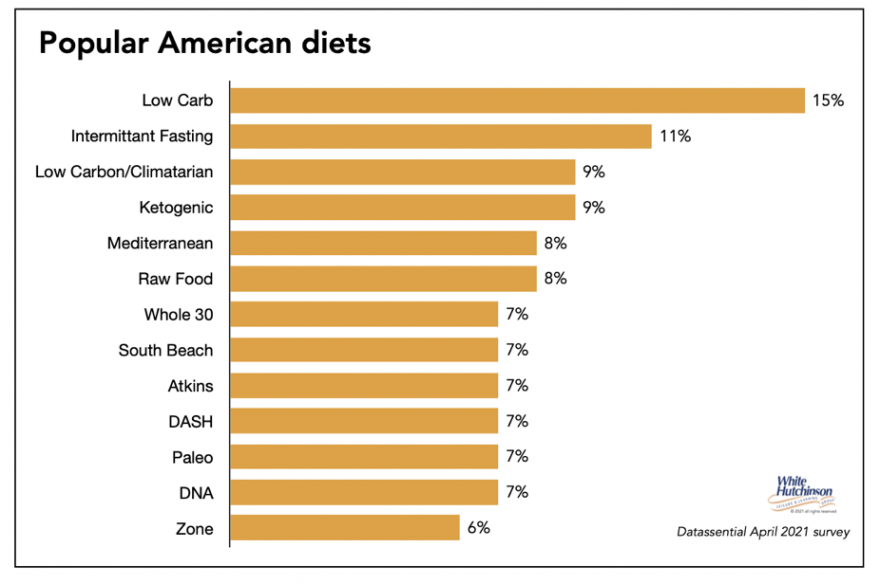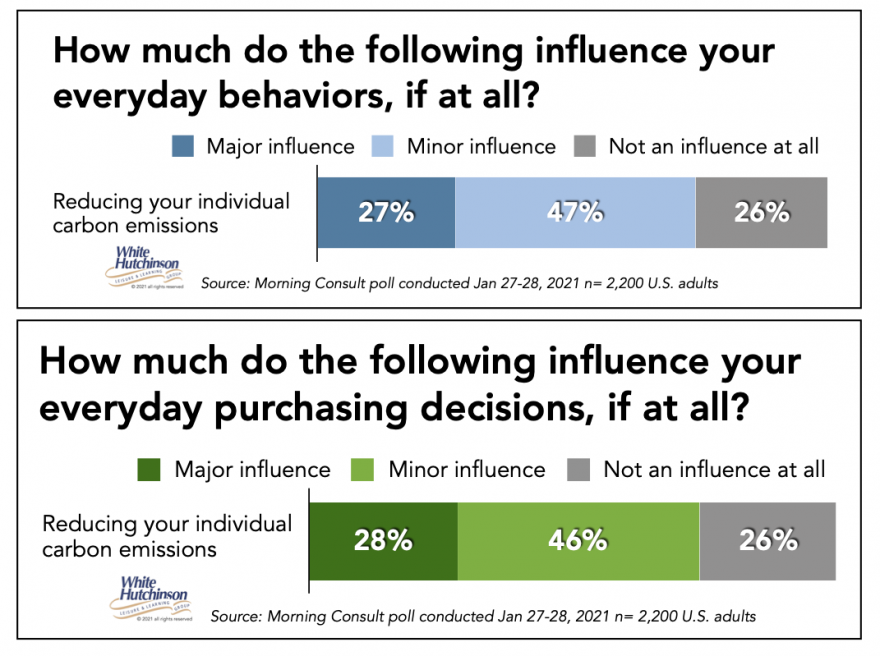
Vol. XXI, No. 4, April 2021
- Editor's corner
- More than one in 10 restaurants have permanently closed. Will demand and supply be in balance post-pandemic?
- Popular American diets
- The long-term stickiness of home nesting and the Fourth Place
- Dave & Buster's prepares for a new normal out-of-home leisure market
- A fast-emerging social-eatertainment concept for the post-pandemic era comes to America
Popular American diets
Americans love to diet. The 2019 Food and Health Survey found that nearly 4 in 10 Americans (38%) say they followed a specific eating pattern or diet in the past year.
Here's a breakdown of all the different diets Americans are currently following:

The third most popular diet - low carbon/climatarian - is a growing category. It's an environmentally-friendly diet that includes vegan, vegetarian, and flexitarian, but also opting for foods with low carbon footprints. It could consist of a regular meat eater who reduces their beef consumption in favor of chicken since chicken has a lower carbon footprint.
Restaurants are starting to prioritize their sustainability and report the environmental footprint of their menu items. Chipotle has a "Real Footprint" tracker on its app and website that lets diners measure the environmental metrics of their menu items in five areas:
- Less carbon in the atmosphere
- Gallons of water saved
- Improved soil health
- Organic land supported
- Antibiotics avoided
Panera Bread is labeling items on its menu as climate-friendly with its Cool Food Meal label.

In late 2019, Disney launched 400 different plant-based options at all their major quick-service and table-service restaurants at their theme parks and hotels. They will all be made without animal meat, dairy, eggs, or honey, basically making them vegan and environmentally less impactful.
We're amid an epic shift in customer expectations, and the future will be defined by the quest for ethical, inclusive, sustainable consumerism. Roughly three-quarters* of U.S. adults consider reducing their environmental impact as either a major or minor influence on both their behaviors (i.e., choosing to drive less, eating less meat) and their purchasing decisions (i.e., selecting products that are more sustainably produced) daily.

To facilitate their quest to reduce their planetary impact, consumers are looking for companies to give them sustainability information about their products so they can make informed decisions, an emerging concept known as "sustainability as a service". Both Chipotle and Panera are very smart to meet this need.
A growing portion of restaurant customers considers the availability of menu items' environmental metrics as an important consideration for which restaurant they choose to eat at. With the two largest fast-casual restaurant chains in the U.S. now heightening awareness of the impact of food choices on climate change and the environment with their sustainability-forward menu initiatives and environmental metrics, we are sure to see a growing share of consumers adopting more eco-conscious dining behaviors. The pandemic has helped to accelerate this trend. Research by OnePoll found that almost half of Americans (47%) have started eating more plant-based food amid the Covid-19 pandemic, and 43% made an effort to eat less meat.
The climatarian movement is something all consumer businesses that serve food need to start paying attention to if they want to stay competitive. The availability of a wide selection of sustainable menu items, including plant-forward menus with the option of plant-based proteins and transparency with environmental metrics, is sure to become a growing influence on which restaurants many consumers will visit.
* This share is likely inflated by the "social desirability bias," a polling phenomenon wherein respondents tend to answer questions in a way they suspect will be viewed favorably.
Vol. XXI, No. 4, April 2021
- Editor's corner
- More than one in 10 restaurants have permanently closed. Will demand and supply be in balance post-pandemic?
- Popular American diets
- The long-term stickiness of home nesting and the Fourth Place
- Dave & Buster's prepares for a new normal out-of-home leisure market
- A fast-emerging social-eatertainment concept for the post-pandemic era comes to America


